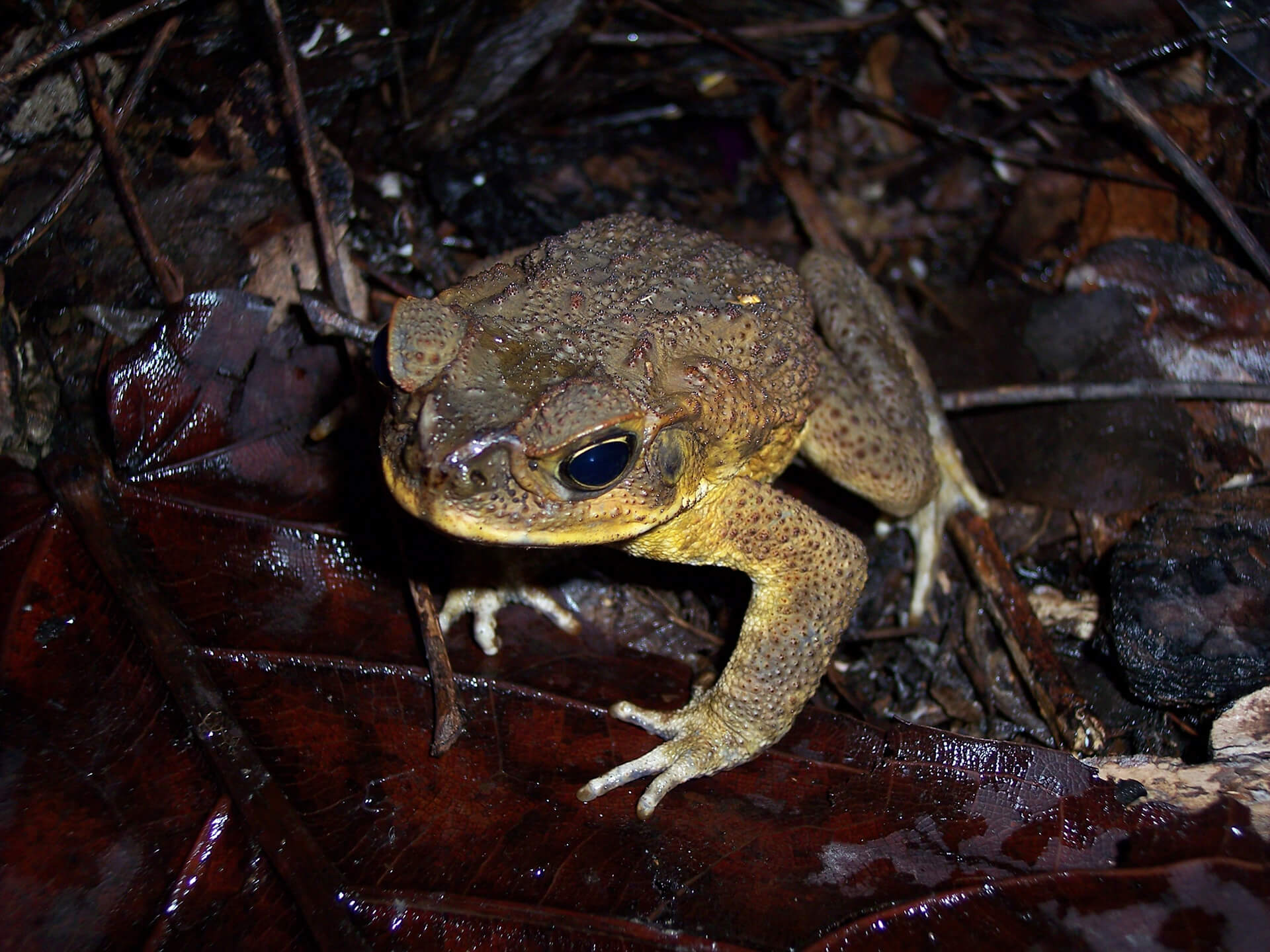Australia may soon have the jump on cane toads after a Gold Coast not-for-profit was granted an exclusive licence to market a University of Queensland-designed bait for the invasive pests.
The environmentally friendly lure developed by UQ Institute for Molecular Bioscience researcher Professor Rob Capon and Professor Rick Shine from the University of Sydney uses the pheromones of adult cane toads to attract tadpoles, trapping them before they grow and reproduce.
UQ’s commercialisation company UniQuest granted the licence to not-for-profit Watergum, an organisation dedicated to driving environmental cultural change through grassroots community education.
A national plan to eradicate cane toads

Watergum president Wal Mayr said the deal gave his organisation exclusive rights to distribute the lure across the country and was another tool in the fight against the introduced species.
“Like a lot of Australians, we are passionate about getting rid of cane toads and stopping them from spreading further south and west,” Mr Mayr said.
“We see this agreement as an opportunity to coordinate different regions across the nation to work together to have an impact on cane toad breeding cycles and reduce their numbers.
“Cane toads have a detrimental impact on native species such as frogs, birds and reptiles, and are even responsible for some species, such as the Spotted-tailed Quoll, being declared endangered.
“They’re also incredibly problematic for producers in rural areas, where they decimate dung beetle populations, which leads to lots of health problems for stock and affects dam water quality.”
Lures give edge in backyard battle
Mr Mayr said Watergum had already coordinated several cane toad freezer collection sites across southeast Queensland, where people deposited humanely killed toads from their backyard.
“We collect the donated toads, often more than 250 a week in the summer months on the Gold Coast alone, and use their glands to make the lures for the tadpole traps,” he said.
“The great thing about the lure is anyone over the age of 18 can use it and ultimately, working together is the only way we are going to stop the spread of these introduced pests.
“We all need to do our bit in our backyards and on our properties to stop the spread of cane toads.”

Professor Capon said the licensing deal with Watergum built on his citizen science project encouraging Queenslanders to trap cane toads.
“This deal means the UQ technology behind the pheromone lures will enable the rapid, cost effective, environmentally sustainable capture and eradication of millions of cane toad tadpoles from waterways across the country,” Professor Capon said.
“Importantly, the lure isn’t harmful to native wildlife and is safe to use in waterways.”
UniQuest CEO Dr Dean Moss said cane toads had rapidly adapted since being introduced to Queensland’s sugarcane fields from South America in 1935 and were now smaller and better able to tolerate cool temperatures.
“We need innovation like this lure to meet the challenges of controlling harmful introduced species, and it’s really exciting to think about the potential environmental impact of this partnership,” he said.
“The exclusive licence will give Watergum the tools to mobilise a coordinated national campaign to stop the spread of cane toads and build on the great work it is already doing.”
Professor Capon received a Queensland Citizen Science Grant from the Office of the Chief Scientist for his cane toad eradication project.
Media:
UniQuest, Brooke Baskin, b.baskin@uniquest.com.au, +61 (0)7 3365 7480, +61 (0)409 767 199; Watergum Invasive Species Coordinator Emily Vincent, canetoads@watergum.org, +61 (0) 721035796; IMB media, communications@imb.uq.edu.au.



